Denim has become a staple in wardrobes worldwide, appreciated for its versatility and never-failing appeal. Its industry is one of the biggest in the textile economy and is deeply involved in the economic and social development of many developing nations. With the spreading urbanization and changes in lifestyles towards less formal, westernized modes of dressing, the need for denim is increasing.
Denim production, however, comes at an environmental cost, involving chemical-heavy processes that damage ecosystems. Though this spells out many challenges, the denim industry is changing to encompass sustainable practices. Leading in that area are brands like PTCL Denim, acclaimed for their commitment to an environmentally friendly manufacturing focus—leading by example through adopting innovative solutions. Let us get into what makes denim production so environmentally intensive and some of the changes introducing greener ways of doing things.

Denim Manufacturing: The Environmental Challenges
The production process of denim itself is resource-intensive and usually polluting. The whole process, from dyeing to finishing, is literally marked with chemicals that prove to have various harmful effects on nature. Key problems include:
1. Water Use and Pollution
Traditional denim dyeing involves the discharge of huge amounts of water and discharge chemicals like heavy metals, acids, alkalis, and enzymes into effluent. This wastewater may pollute natural waterways, which have effects on aquatic life.
2. Desizing and Finishing Waste
During the manufacturing process, a process called desizing creates wastewater with a high Biological Oxygen Demand (BOD). Conventional methods of finishing, such as stone washing, also use up too much water and energy.
3. Synthetic Indigo Dye
Most denim is dyed using synthetic indigo, which depends on petroleum-based chemicals. This process not only uses up natural resources but also produces toxic waste.

Innovations in Sustainable Denim
In response to all these challenges, the denim industry is resorting to new technologies and processes that could minimize harm to the environment. Some of them include:
1. Bioindigo Dyeing
Made by means of genetic engineering and synthetic biology, bioindigo holds much promise as an alternative to synthetic indigo. It uses less water, land, and energy and is a much cleaner way to dye denim.
2. Waterless Dyeing Techniques
New technologies such as digital spray, foam dyeing, and supercritical carbon dioxide (sCO2) dyeing are emerging. Those technologies can save large amounts of water, making them game-changers in sustainable denim production.
3. Enzyme-Based Finishing
Enzymes are surfacing as an eco-friendly alternative to the traditional stone washing. They save both water and energy and can be immobilised to further enhance efficiency and combine several processes in a single one.
4. Laser and Ozone Bleaching
Replacing traditional chlorine bleaching, laser and ozone methods provide an environmentally friendly alternative. These processes also use less energy, are at ambient temperature, and reduce the time used in bleaching.

5. Eco-Friendly Sizing Materials
Researchers are trying biodegradable materials such as soy protein, chicken feathers, and cellulose ether as substitutes for synthetic sizing agents. All these options hold great promise, although scaling to industrial levels has yet to be perfected.
6. Advanced Processing Technologies
Some of the latest technologies in the processing domain, like sonication and plasma-assisted processing, have been successfully tried on a small scale within laboratories but require much investment to bring them to the scale necessary for an industrial application.
Sustainable Brands: The Role Ahead
Brands like PTCL Denim stand at the forefront of this green revolution. With bioindigo dyeing, laser-assisted bleaching, and enzyme-based finishing, PTCL Denim leads by example in the quest for sustainability within the parameters of the fashion industry. Its commitment to waste reduction, water conservation, and energy saving places it as a leader in ethical denim manufacturing.

Consumers can help change things by choosing brands like PTCL, which will be able to put all their effort into sustainable practices. Buying eco-friendly denim supports responsible production and, at the same time, encourages the industry to continue innovating toward sustainability.
The Future of Sustainable Denim
With increasing demand for denim, the demand for sustainable practices is also on the rise. Innovations like waterless dyeing, bioindigo synthesis, and eco-friendly finishing techniques are some of the keys to a greener future. However, scaling these solutions to industrial levels will require collaboration between researchers, manufacturers, and policymakers.
With such brands as PTCL Denim leading the way, consumers can create a revolution in the industry with their choice of sustainable alternatives. Together, we can make sure that denim truly is timeless—without costing the planet.





Comments (0)
There are no comments for this article. Be the first one to leave a message!